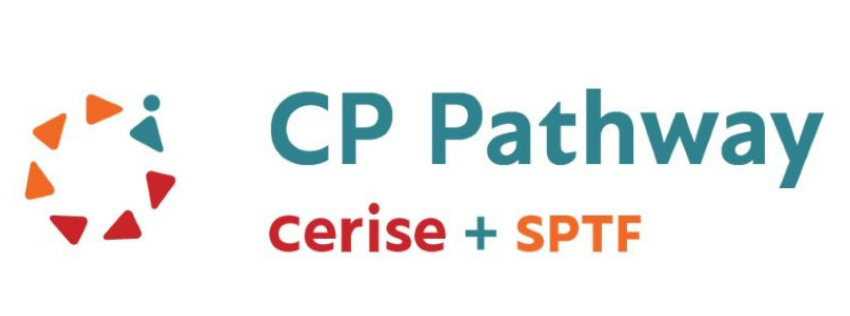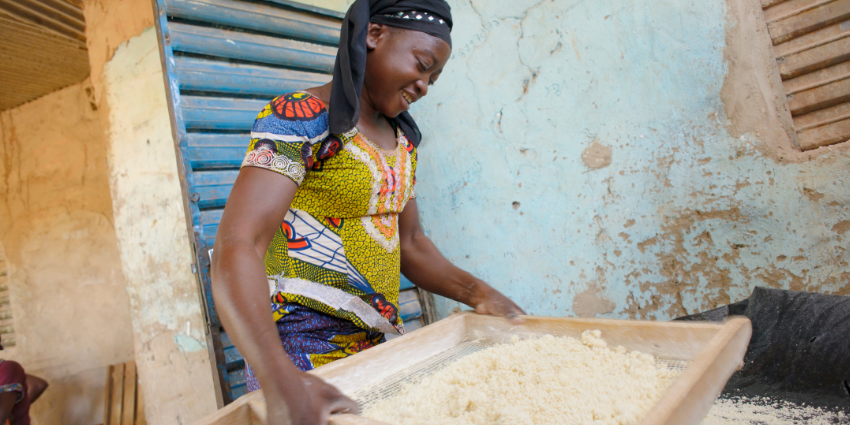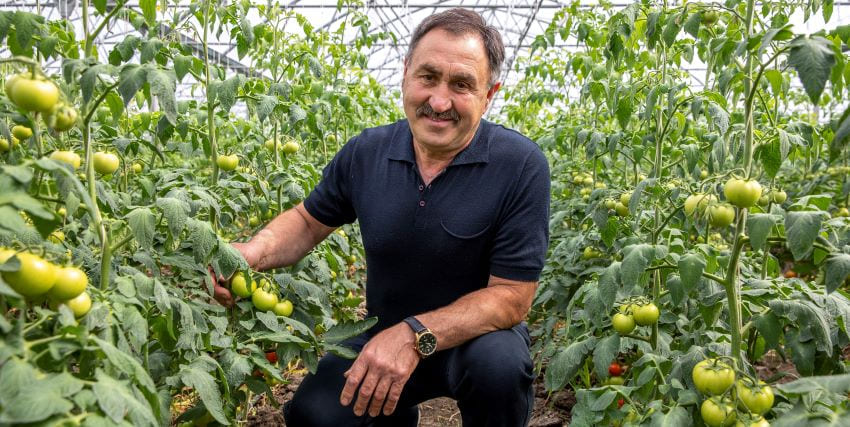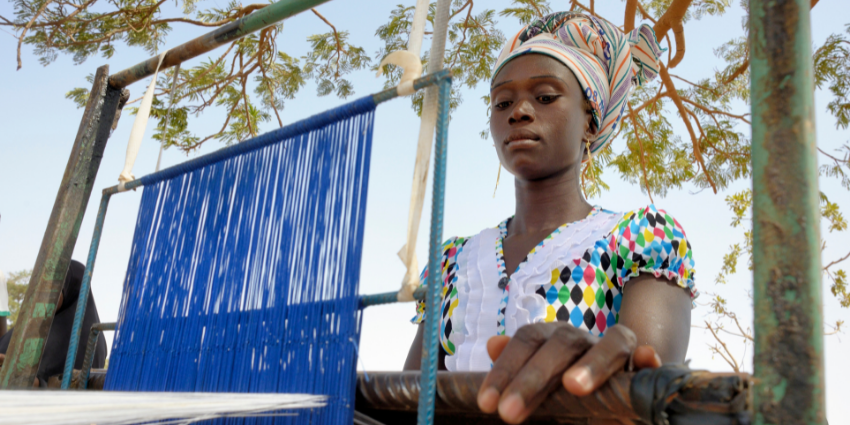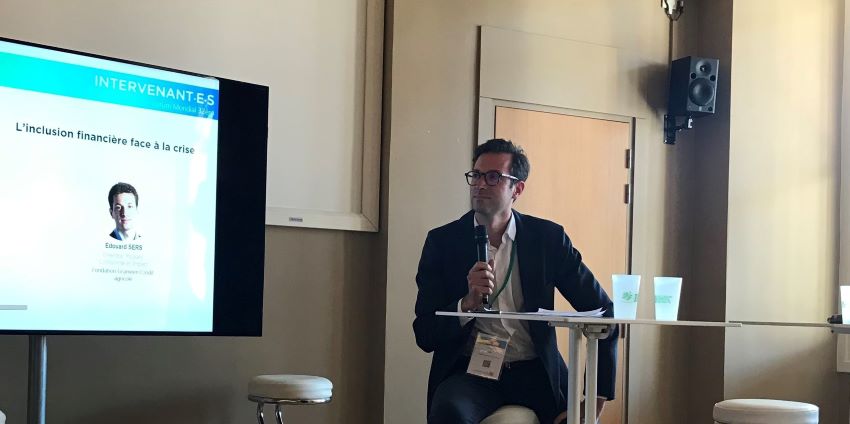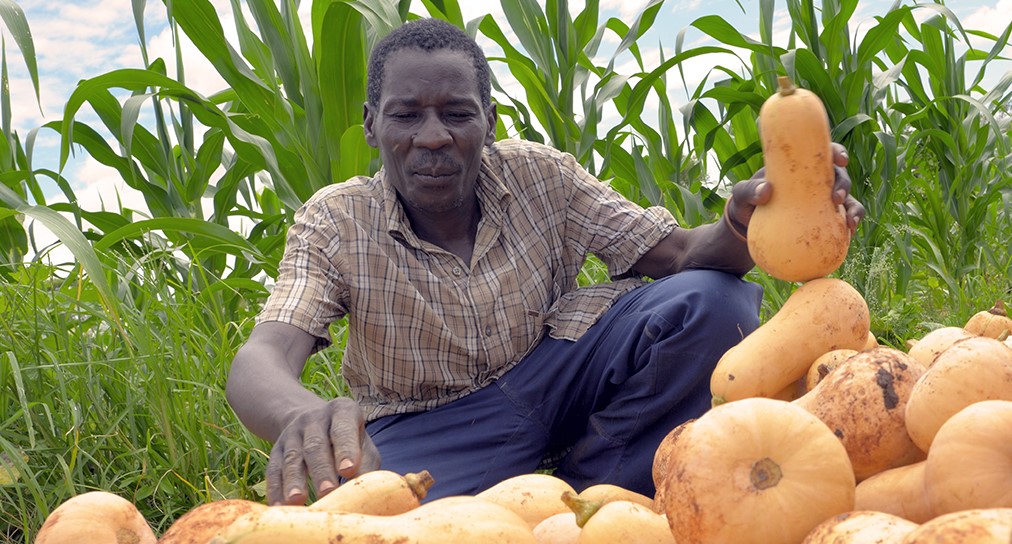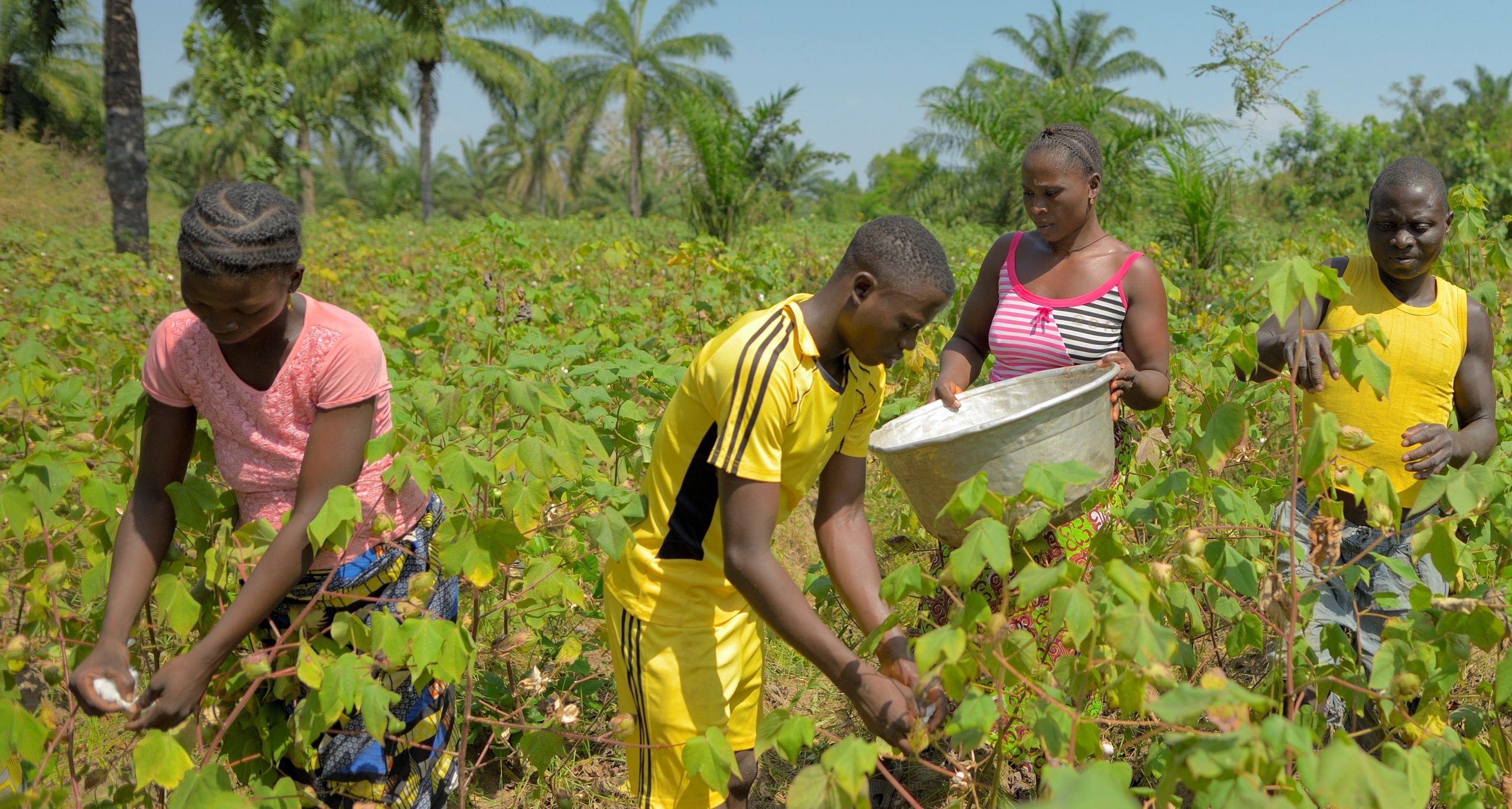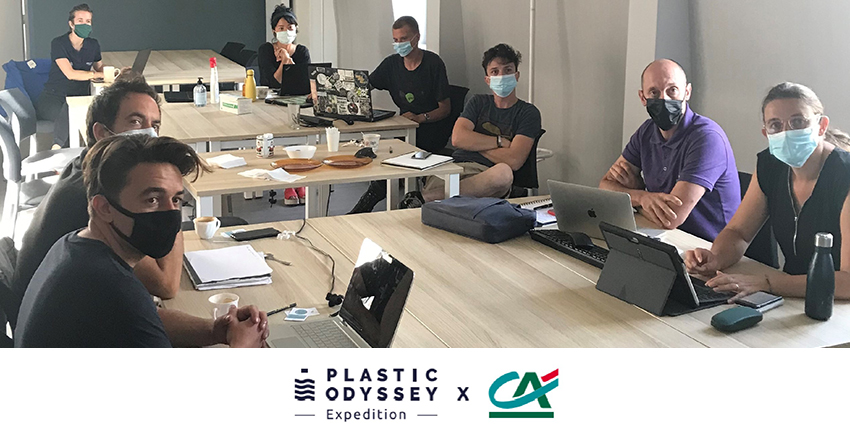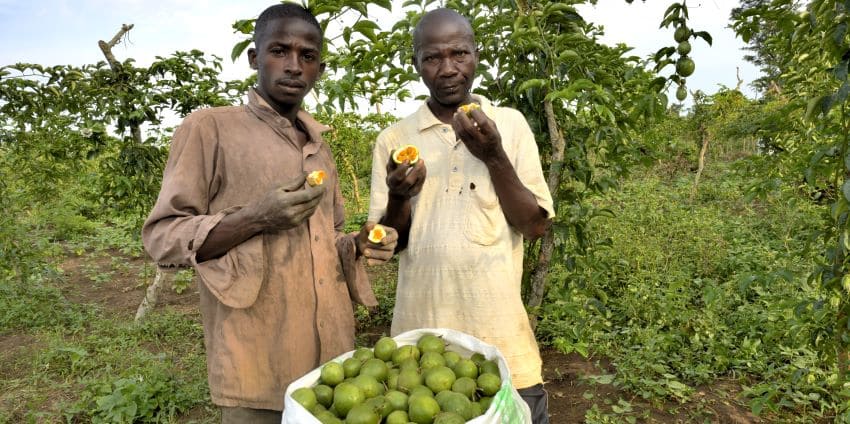
© Didier Gentilhomme
Since 2019, the Grameen Crédit Agricole Foundation, Swedish International Development Cooperation Agency (AIDS) and the United Nations High Commissioner for Refugees (UNHCR) join forces to support refugee populations in Uganda.
The Foundation has been selected by the Swedish International Development Cooperation Agency (Sida) and the United Nations High Commissioner for Refugees (UNHCR) to design and coordinate an innovative program aimed at improving the livelihoods, resilience and financial inclusion of refugees and host communities in Uganda.
Hanadi Tutunji, Financial Inclusion Officer at the UNHCR, looks back on this four-year joint program.
How is financial inclusion a sustainable solution for refugees in Uganda?
Uganda hosts approximately 1.5 million refugees and asylum seekers, making it the largest host country in Africa and the third largest in the world. It has one of the most progressive refugee policies in the world and is a leading country in implementing the Comprehensive Refugee Response Framework (CRRF) and the Global Compact on Refugees (GCR). In Uganda, refugees live in settlements close to host communities and have access to the same national public services, including health, education, water, livelihoods, and sanitation. Refugees also have freedom of movement, the right to work, and have been included in the country's National Development Plan III.
A large majority of the refugees (94%) live in 13 settlements located in the southwest and north of the country. The remaining 6% live in urban areas near Kampala. Despite Uganda's progressive and inclusive policies, the poverty rate among refugees is nearly twice that of host communities, creating challenges for peaceful coexistence and security issues, particularly for women, girls, and people with special needs.
In 2020, the World Food Programme reduced food rations for refugee populations by 301,000 people due to a lack of funding. The impact of this reduction in food rations was compounded by the COVID-19 crisis and the nationwide lockdown. As a result of the lockdown, 131,000 refugees were forced to stop working (especially those living in urban areas), further increasing their food and financial insecurity.
Durable solutions must therefore be found to address the humanitarian and development challenges facing Uganda, particularly given the large number of refugees in protracted displacement.
Financial inclusion helps increase refugees' access to financial systems, expand economic activity, and promote microenterprises and self-employment. Financial and non-financial services offered to refugees help them sustainably meet their needs. It is therefore important to engage with and facilitate the private sector to develop and deliver tailored financial services to refugees, including access to savings, loans, insurance, and remittances.
Can you explain the specifics of the program?
The program aims to improve access to credit for refugees and their host communities so they can develop income-generating activities. The program's ultimate goal is to improve the resilience of approximately 100,000 households among these populations.
This program, which leverages mixed financing (public and private capital), includes three components: a lenders' guarantee fund, debt financing for three microfinance institutions (MFIs) and technical assistance for MFIs and refugees.
UNHCR shares socioeconomic data, facilitates access to refugees, trains MFI staff on refugee needs and protection, and monitors refugees' participation in financial and business training. The Grameen Crédit Agricole Foundation, with financial support from Sida, provides the technical assistance component of the program, which aims to provide refugees with non-financial services, such as business training and financial education. Technical assistance also helps cover some of the initial set-up costs incurred by MFIs to expand their lending operations to refugees.
Thanks to the program, MFIs were able to open new branches in the districts of Moyo (Parlorinya settlement), Yumbe (Bidibidi settlement), and Isingiro (Nakivale settlement), where many refugees live. As of the end of March 2021, 14,777 loans had been granted by the MFIs benefiting from the program, including 6,423 loans (44%) to refugee populations. 19,294 people had also benefited from training. Since the program targets both refugees and their host communities, it facilitates links between communities, thus promoting their peaceful coexistence.
What are UNHCR's priorities and perspectives for financial inclusion worldwide?
Refugees' financial needs evolve over time, ranging from financing survival means at the time of arrival to more comprehensive services such as savings, payments and credit at a later stage.
Financial inclusion represents a stepping stone from humanitarian assistance to sustainable business development. UNHCR ensures that refugees and vulnerable people in host communities have access to affordable and appropriate financial services, and that responsible financial service providers deliver these services.
To strengthen financial inclusion, UNHCR aims to expand its partnerships in the future, continue to support and motivate its partners to provide sustainable services to refugees, and support them in their advocacy efforts to improve the regulatory framework.
